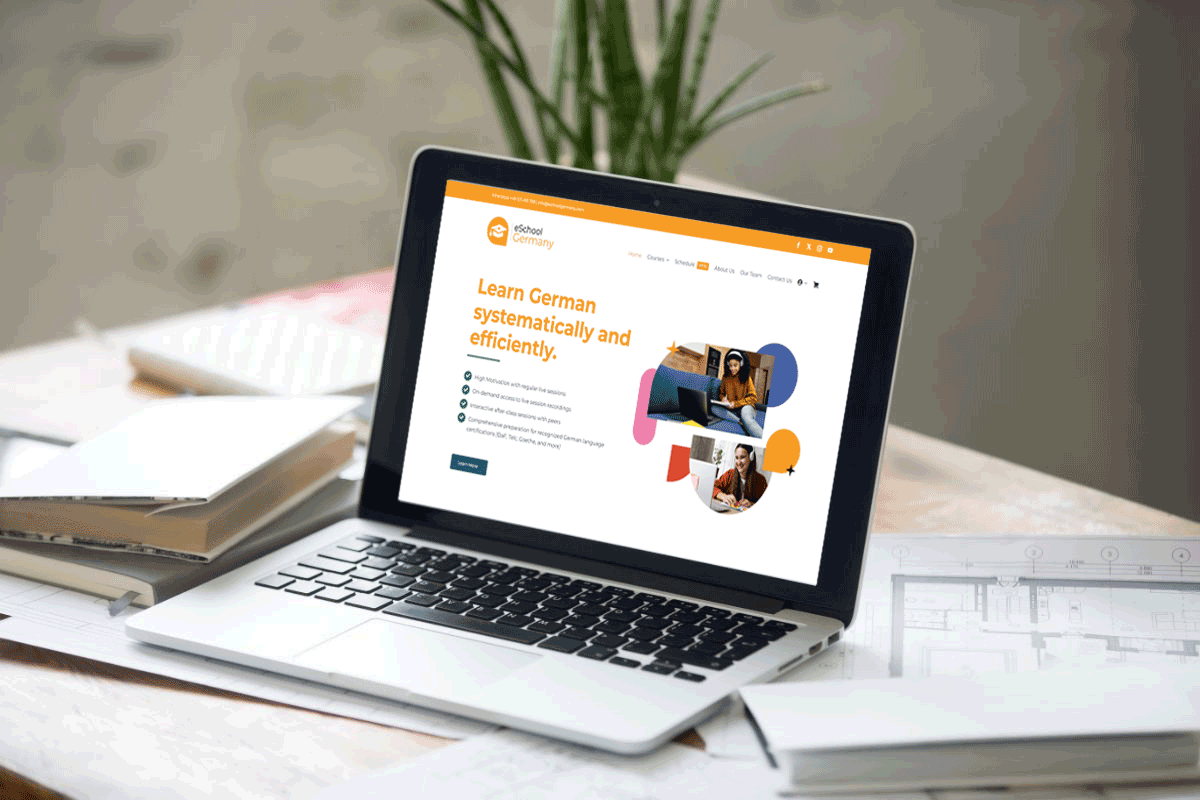How are the language levels structured?
What do A1, A2, B1, B2, C1, C2 mean for German courses?
Language courses in Germany and around the world are categorised into six levels in order to make prior knowledge of languages comparable. Our German courses at eSchoolGermany also fall into this category. Levels A1 and C2 are aimed at beginners and people who can speak German almost like a native speaker. All our German courses are designed according to the Common European Framework of Reference for Languages (CEFR).
The six CEFR levels from A1 to C2 are each divided into two modules. Each module can be completed in 48 lessons.
Elementary use of language
Independent use of language
Competent use of language
Objective of the Common European Framework of Reference for Languages (CEFR)
The European Framework of Reference for Languages is an international standard for language skills. It shows what learners should be able to do at the different language levels A1 to C2 – in terms of listening, speaking, reading and writing. This makes it easier to compare language courses, language exams and German certificates from different schools and universities.
How to Choose the Right Level for You?
With our free online placement test, you can quickly find out what language level you have. We can use this test to find out how well you can speak German. We can then find the right German course for you. Because it is important that you attend exactly the German course in which you can learn best. Take our free and non-binding online placement test now.

Language level A1 to C2
Objectives and scope of vocabulary and grammar according to CEFR

A1 – Basic Level of German Language
The A1 level is designed for beginners who are just starting to learn German. At this level, you will learn essential sentences, phrases, and vocabulary that allow you to communicate in simple everyday situations. The focus is on basic communication skills, such as introducing yourself, ordering food, and asking and answering basic questions.
Goals:
By completing this level, you will be ready for simple daily conversations in German.

A2 – Basic Level of German Language
The A2 level builds on the foundational knowledge gained at the A1 level. At this stage, you will enhance your ability to communicate more confidently in everyday situations. You will learn to talk about topics such as family, work, shopping, and leisure activities. The focus is on clear expression and understanding of simple texts.
Goals:
By completing this level, you will be more independent in basic communication situations.

B1 – Intermediate Level of German Language
The B1 level is designed for learners who want to become more independent in speaking and writing German. At this level, you will be able to express yourself more clearly in everyday situations, talk about experiences, events, and share your opinions. This level also covers basic language skills needed for work and studies.
Goals:

B2 – Upper Intermediate Level of German Language
The B2 level is designed to help learners become more confident in both speaking and writing in German. At this level, you will be able to communicate fluently on a wide range of topics, including professional and academic subjects. The focus is on mastering more complex grammatical structures and vocabulary, allowing for a deeper understanding of texts and technical discussions.
Goals:

C1 – Advanced Level of German Language
The C1 level allows learners to use the German language with a high degree of accuracy and spontaneity. At this stage, students can understand and interpret complex texts and communicate effectively in professional and academic contexts. The focus is on developing skills needed for fluent communication without having to think too much about grammar.
Goals:

C2 – Proficient Level of German Language
The C2 level represents the highest proficiency in the German language. At this stage, learners can use German almost like a native speaker. You will be able to understand virtually everything you hear or read and express your thoughts and ideas effortlessly in any situation, whether it be in everyday, professional, or academic contexts.
Goals:


